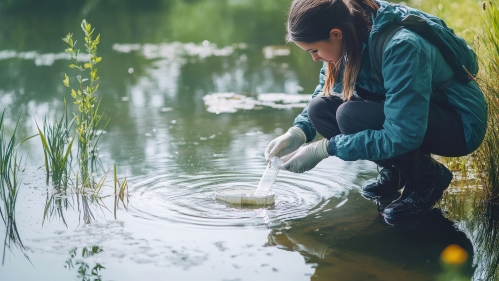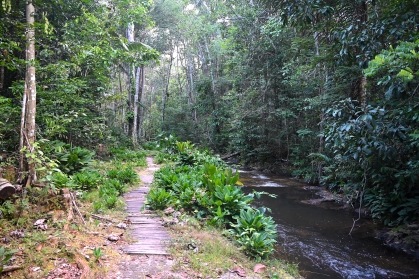
Department Research
The vision statement of the Department of Ecology, Evolution, and Natural Resources (EENR) is to engage in research, teaching, and extension that explores the evolutionary generation of Earth's biodiversity, how this rich tapestry of life is structured by ecological interactions between species and their environment, and ways to sustainably manage and conserve this diversity in the wake of unprecedented global change.
EENR researchers benefit from New Jersey's exceptionally wide array of marine, freshwater, and terrestrial ecosystems. Within a single day, one can visit and study habitats of the barrier islands, coastal plains, the Piedmont, Precambrian highlands, and ridge and valley geological provinces.
This department is truly interdisciplinary and, as such, research areas shift based on the interests of current faculty members. What ties them together is their focus on the quantitative study of ecology and evolution, and the education of students in those areas. Below are just some of the department's emerging foci and current strengths.
Natural Resource Management
Researchers in this field focus on the management and conservation of natural resources. Current research projects focus largely on the state's fisheries and forest resources. The department is placing increasing emphasis on cutting-edge "big data" analyses to enhance renewable resource management at both state and local levels.
Urban Ecology
New Jersey is the most densely populated state in the nation and, as a result, is at the forefront of urbanization. Indeed, New Jersey is a natural laboratory where EENR researchers explore how urbanized environments interact with the natural world.
One example of applied research within the department is the implementation of pollinator-friendly plantings beneath powerlines. Faculty members are collaborating with PSE&G, a major energy provider in New Jersey, to ensure these plants effectively support insect diversity and meet the pollination needs of local ecosystems.
Land Use
Faculty collaborate with public and private partners to analyze vegetation and land-use changes, and their impacts on humans and ecosystems. This research addresses critical issues such as biodiversity conservation and access to recreational lands.
Faculty benefit from close collaboration with the Rutgers Center for Remote Sensing and Spatial Analysis, which harnesses the power of remote sensing, geographic information systems, global positioning systems, and computer simulation modeling to address issues in the built and natural environment both locally and globally. This multidisciplinary research center focuses on providing reliable, evidence-based information to support effective and sustainable planning for land, coastal, and marine areas.
Environmental DNA
To monitor species biodiversity across different environments, faculty are using environmental DNA (eDNA) technology. This allows them to detect the presence of both endangered and invasive species with precision and efficiency.

Microbes as Model Systems
Studying ecological and evolutionary patterns in nature can be challenging. To overcome this, faculty are replicating these complex environments on a microbial scale in the lab. These experimental approaches allow researchers to investigate a range of questions, from observing perturbations in microbial ecosystems to monitoring how viruses adapt to novel hosts.